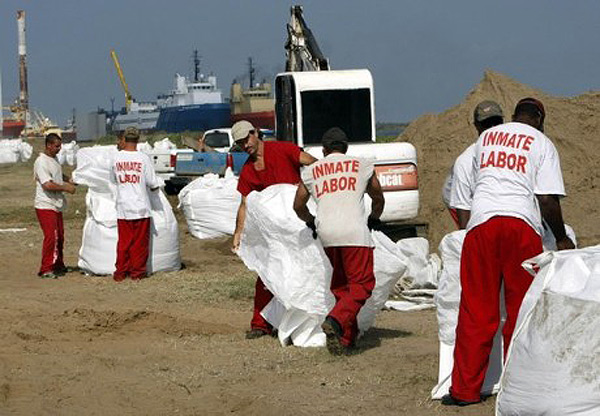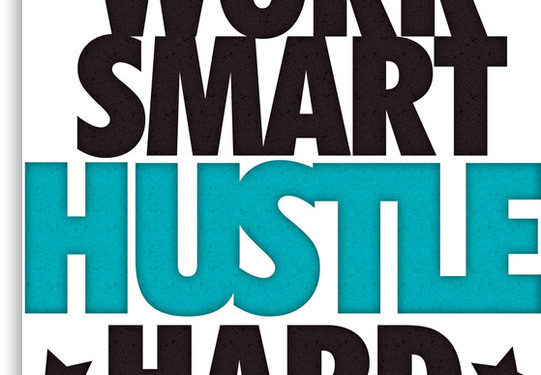In my wayward youth, which I still remember as if it were only yesterday, I knew an assorted cast of characters. One of them, 5’9” and 420 lbs. on a slim day, would frequently tell me he was crime and “Crime don’t pay”. The sophomoric line would have otherwise been intolerable but his delivery was a perfect combination of Clint Eastwood and Maxwell Smart (See ME TV for Get Smart reruns). When I met him he was the leader of a credit card theft ring. (No need to say allegedly because I never mentioned his name and even if someone were able to figure out his identity, the statute of limitations has long passed). We eventually fell out of touch (cause pending fed investigations will do that) so I’m not really sure what ever happened to him, but chances unfortunately and statistically remain high he ended up in some type of correctional facility. If for whatever reason “Crime” didn’t get locked up it would make him a hood anomaly.
Let’s keep it totally one hundred; crime is usually a chosen shortcut in the pursuit of the American dream. It is the true rarity that one has to pursue criminal activities as the ONLY means of feeding themselves or providing for their family. The excuse is overused and has really run its course. America is a truly flawed country, but for the most part there are enough social programs in existence, to at the very least feed and in most cases house people of indigent means. I am not saying that these programs will leave individuals well-fed or living in ideal conditions, but the programs are in existence at the very least as stopgap measures.
My mother worked her ass off trying to provide a roof for us and food on the table for two growing boys. There were many days when my brother and I were hungry until dinnertime having outgrown the sparseness of school provided lunches. My mother realized the dilemma in having growing boys whose appetites were far exceeding her monthly food budgets. Foolish pride made my brother and I beg her not to go on food stamps. For those of you unfamiliar, prior to EBT cards that look like regular debit cards, food stamps were like fake money (usually only accepted in hood certified venues) and an announcement of your status. Most of my friends claimed not to use them and we didn’t want the self-proclaimed stigma of being the welfare kids. I laugh now at the thought. I was so hungry for twelve hours of nearly every day and that issue could have been easily rectified by acceptance of programs to help kids just like us.
The experience imbedded two life long lessons. The first being utter props and respect to my mother for her fortitude. She worked harder, doing overtime every permitted night to eventually make up our shortfall. I saw how hard she worked…how tired she was and understood her grind. The second was that I never wanted to struggle financially in my life again.
There are many people with far worse examples than my own, but the gist is essentially the same, when you come from relatively meager means you want more. How we choose to go about achieving that means needs to be re-examined. I come from that stereotypical hood in which the only people with the flashy fronts were the hustlers. As crazy as this sounds, growing up I didn’t know any adults in my neighborhood who had graduated from college, and secured upwardly mobile professions. So the perception was that hustling equaled fast money and fast money was supposedly easy money.
I was guilty of falling for the trap. Though I managed to stay the course and receive a college and post graduate education I wanted money and materialism immediately and made poor, even if conscious, choices to get paid. It will make a better story for another time, but to put it succinctly “partna I didn’t get to keep any of that money I made from 88.”
Today, trap/rap music is dominated by songs extolling the virtues of getting money in the streets. Everyone is in love with the Coco, and more pies are being flipped than Dominos on a Superbowl Sunday. Its just entertainment, but to the extent that kids are easily influenced by music and the Internet is noteworthy to say the least. This is not just an urban issue as we are now living in a microwaveable society in which everyone wants instant gratification. Overnight riches are desired and fast money, by any means or shortcuts is deemed necessary. However, no one is telling the truth about the search for fast money.
Hustling Economics 101: All money isn’t good money.
Best-case scenario say you get a five year run at your “hustle.” A five-year continuous run at any illegal activity is a loooong time. Busts, snitching, disloyalty, ineptitude, greed are just a few of the reasons that all criminal enterprises have eventual statute of limitations. Yet, even if you are the exceptional criminal genius with impeccable timing and even better luck and you get the long run at your craft, one of two inevitabilities will occur; if another bad guy doesn’t get you, the police will.
You are getting money so it stands to reason that the local police or the feds have you on multiple felony charges. Your actual guilt or innocence is not as important as is your ability to pay for and fight for your freedom. If you are even allowed bail, it will be costly, and now let the games begin.
A private even moderately priced defense attorney is going to be anywhere from Five thousand to twenty thousand dollars per felony count. A top attorney is going to cost easily 50- 100k or more. There are no set prices for these things, but believe me they are sizing you up the minute they meet you. You are big time? So will be your defense budget. The more you value your freedom, the more they know they can charge to even keep your ass out of jail. In your first consultation with your attorney, they will ascertain how much you are liquid and have socked away. A veteran shyster will know how to separate you from every dollar you have: legally.
Don’t get mad at the lawyers, it’s their hustle within the game you chose to play. This piece isn’t about morality on either side, it’s about breaking down glamorized economics that really don’t add up when given even the slightest thought. So Johnny Cochranstein gets you off. You’re broke and instead of knowing when to walk away a false sense of invincibility pervades and you resume hustling to try and get back all you’ve lost. The problem is the Feds and local police are vindictive, with way greater resources than you. They are coming back after anyone they lose to. Don’t believe me, ask OJ.
If you lose you go to prison. Once again it is the rare exception of anyone going to jail for longer than a three year stretch and after attorney’s fees and family expenditures, coming home to any money. BMF allegedly sold $270 million dollars worth of drugs, but yet prior to his sentencing fundraisers were being held for Meech’s mom. I am not claiming they were broke, I am simply saying the life, no matter how glamorized, is never what it seems.
In the streets you were the man. In prison you may have respect even be considered a “shotcaller”, but at the end of the day someone else controls nearly every facet of your life; when you may eat, sleep, see the sun… You laugh at squares who went to school, and work 9-5’s for BS hourly wages, but in prison if you are lucky you make $4.73 a day where the average minimum daily wage is $0.93 a day, excepting places like Georgia and Texas where they aren’t required to pay you at all.
The Godfather I & II have always been two of my favorite movies. I can’t count how many times I have seen Scarface and King of New York. Yet, thankfully my idolization of the glamorous counter-culture and outlaw lifestyle was interjected with a healthy dose of realism. You will ultimately pay from committing crimes and the eventual direction I went in may have lacked some of the allure of fast money lifestyles… at the end of the day I ended up with the house and cars, minus all the stress and aggravation in worrying about someone taking it (and my freedom). Life isn’t a sprint. Slow and steady may not be sexy but it often wins the race and it definitely beats the reality of “hustling” money that comes with too many costs to outline.



